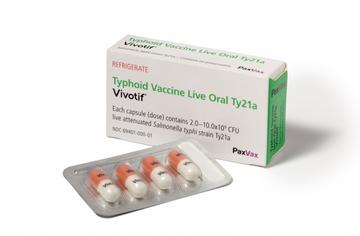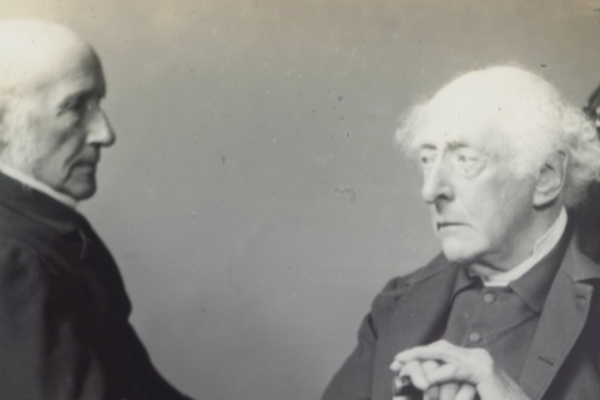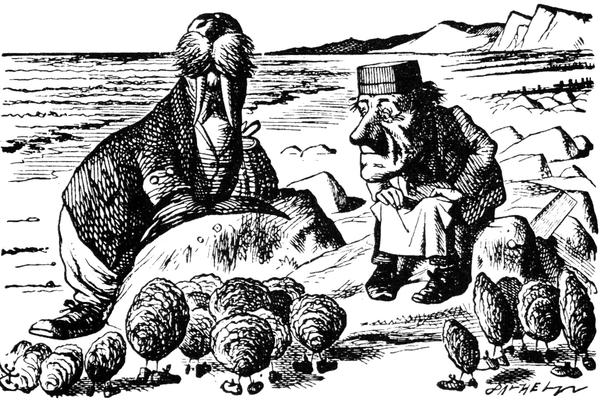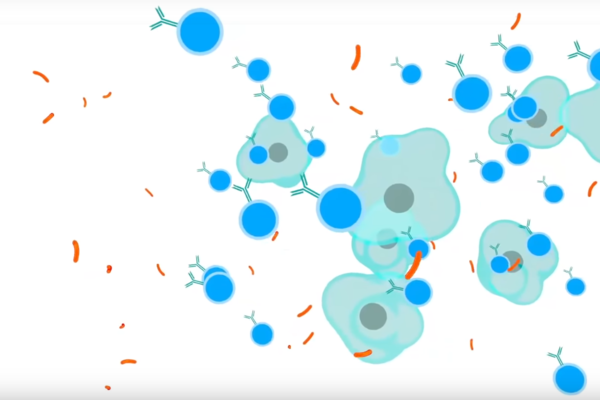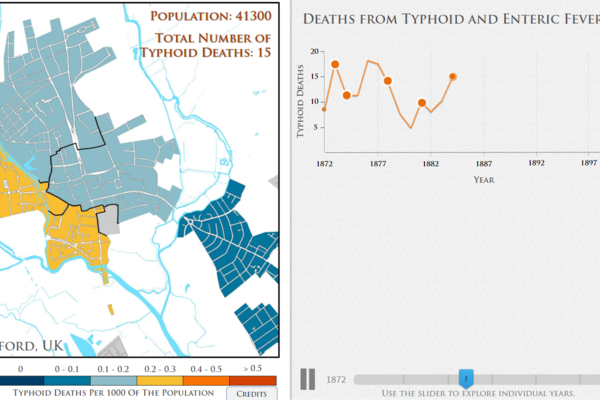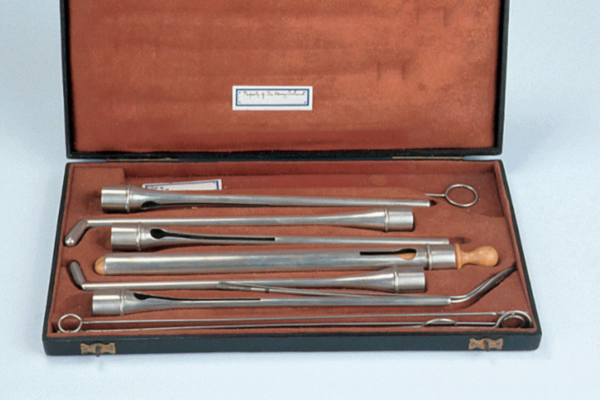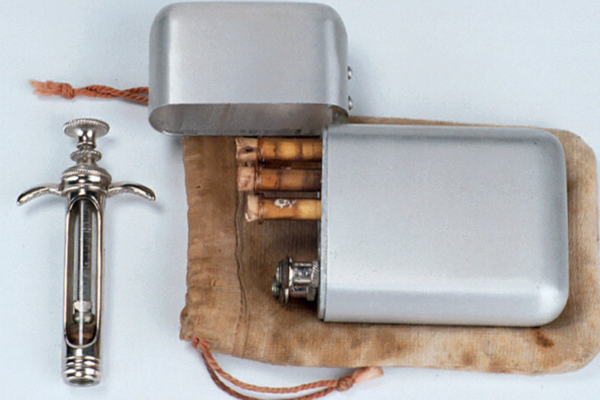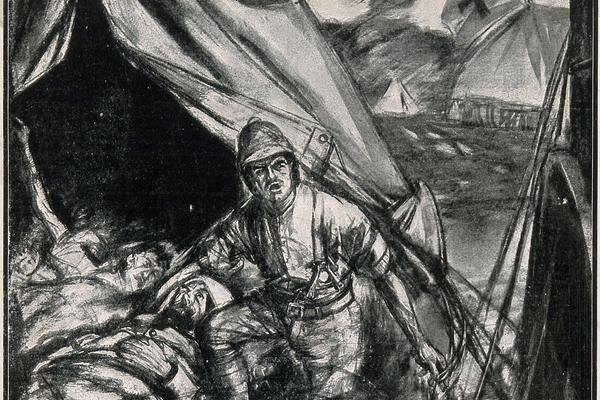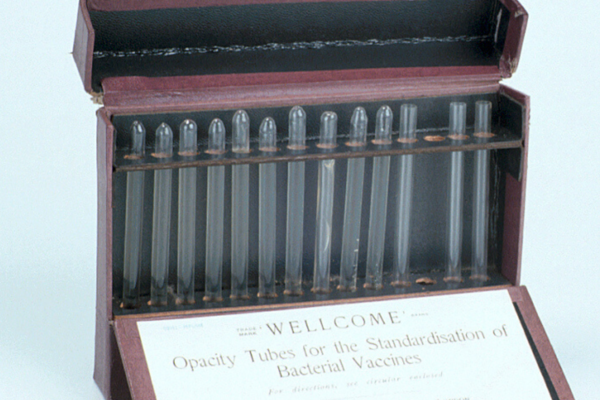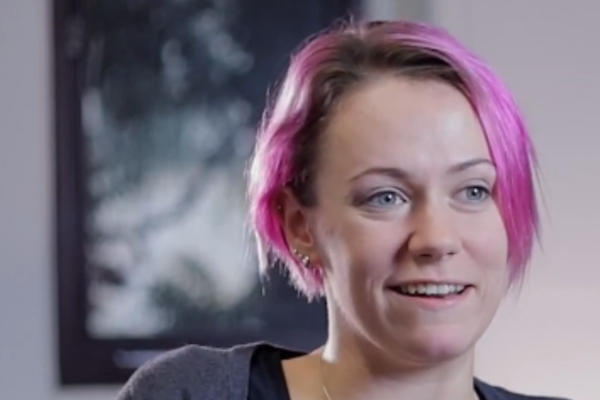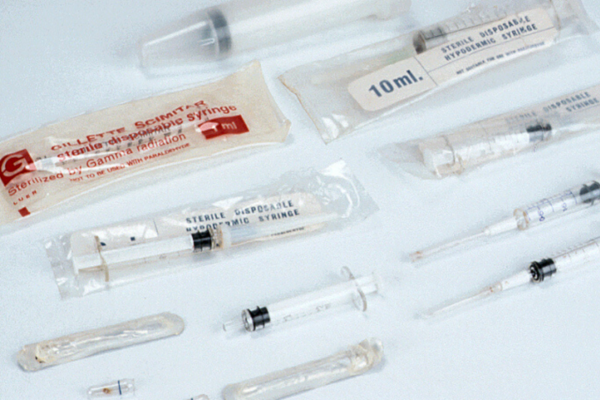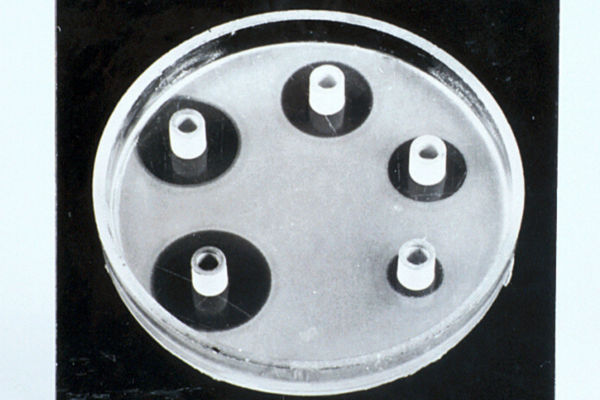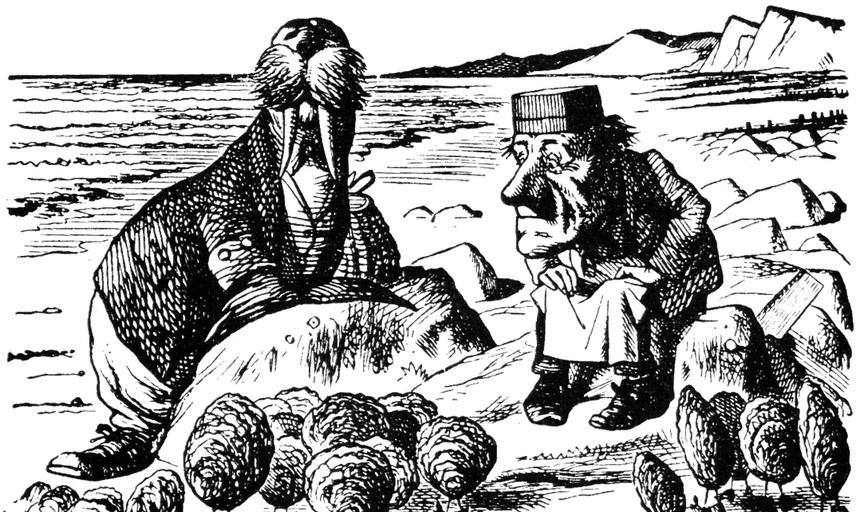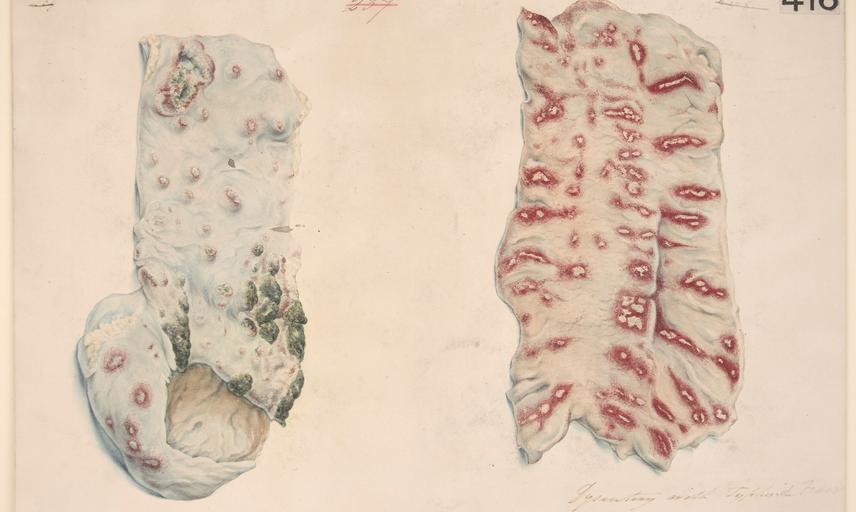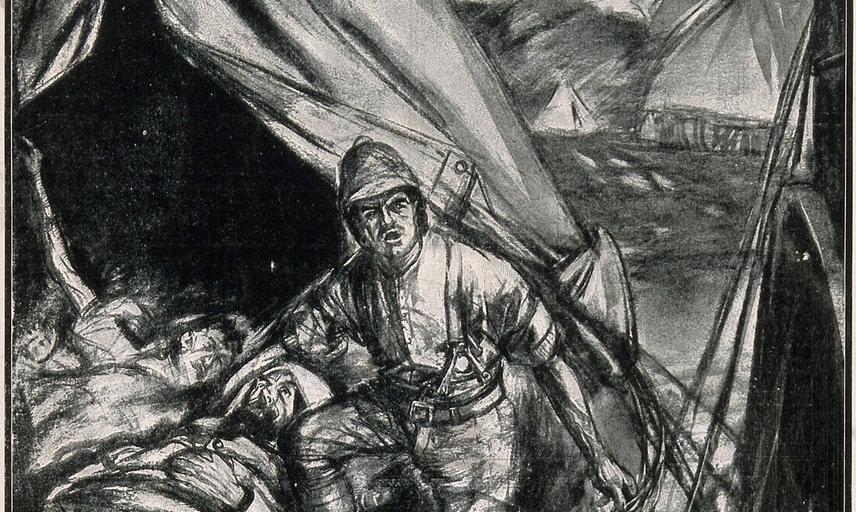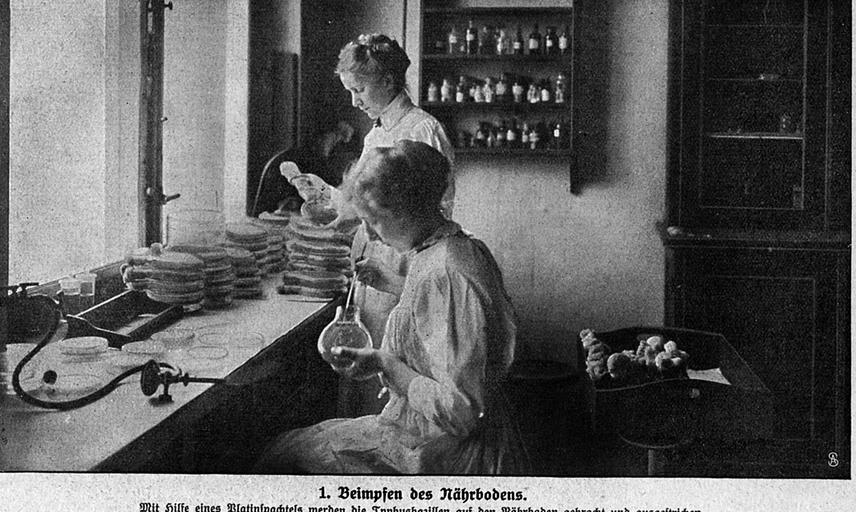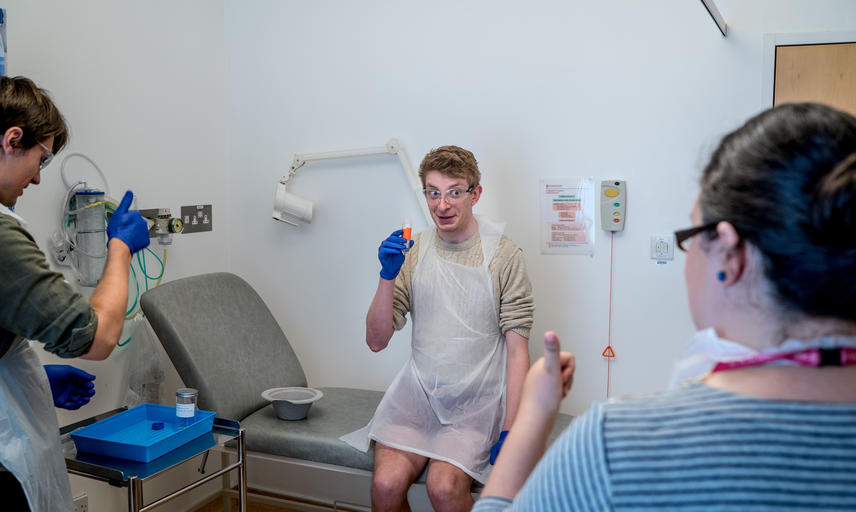Alice in Typhoidland
Glide with us on a murky ride as we journey down the sewer hole into Oxford's underside ...
Join Alice Liddell (Alice in Wonderland) on a tour of the past and present of typhoid control.
- Discover how Victorian doctors and scientists helped make typhoid visible and developed the first typhoid vaccines.
- Learn about the current challenges of typhoid across the world and what researchers in Oxford are doing to tackle it.
There is much to see in Typhoidland.
Finding Typhoid
Typhoid is an ancient disease.
It is caused by the bacterium Salmonella enterica serovar Typhi (S.Typhi) and spreads in contaminated water, food, and milk.
For thousands of years, typhoid was an invisible threat to both princes and paupers.
It killed up to one in five of its victims and made many others very unwell.
It was only after 1800 that new clinical, statistical, and bacteriological methods helped turn typhoid into a clearly defined and preventable disease.

Sanitation reform: The Two Henrys
Sanitation and typhoid in Oxford
Oysters — "eaten every one"
Last major UK typhoid outbreak
Preventing Typhoid
Growing knowledge about typhoid and its transmission led to significant improvements in disease control.
Victorian reformers like Sir Henry Acland and Dean Henry Liddell used the spectre of typhoid to campaign for improved sewage disposal and safe drinking water.
By 1900 pasteurising milk and chlorinating water had also proved effective in combatting typhoid.
Another powerful way to prevent typhoid was developed in 1896 when German and British researchers used killed typhoid bacteria to develop the first generation of typhoid vaccines.

How do vaccines work?
Deaths from typhoid and enteric fever
The birth of bacteriology
Surgical probes
Developing Vaccines
Early vaccines helped control typhoid in war and emergency zones.
However, popular opinion about their safety was divided.
In Britain typhoid vaccines’ first rollout was marred by side effects and logistics problems. Improved vaccines were reintroduced during WWI.
Despite protests from a small but vocal group of anti-vaccine activists, prominent physicians helped ensure voluntary mass-vaccination.
Most Britons now encounter typhoid vaccines when they are travelling abroad but newer vaccines also help protect populations without access to safe water and health systems.

Tackling Typhoid
Despite over 150 years of control efforts, typhoid still infects over 11,000,000 people of whom over 100,000 die every year.
Worryingly, typhoid is also becoming resistant to the antibiotics used to treat it.
A current mass outbreak in Pakistan is untreatable with all but one of the affordable oral antibiotics.
Tested in Oxford in 2017, the new typhoid conjugate vaccine (TCV) and increasing global access to safe water and health systems are crucial ways to tackle typhoid.
